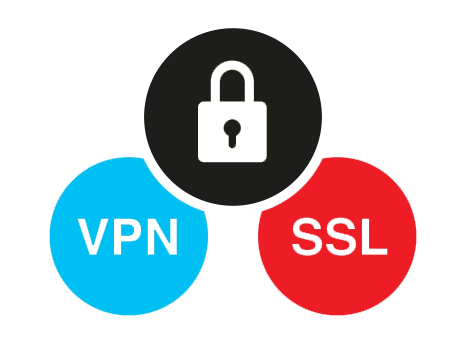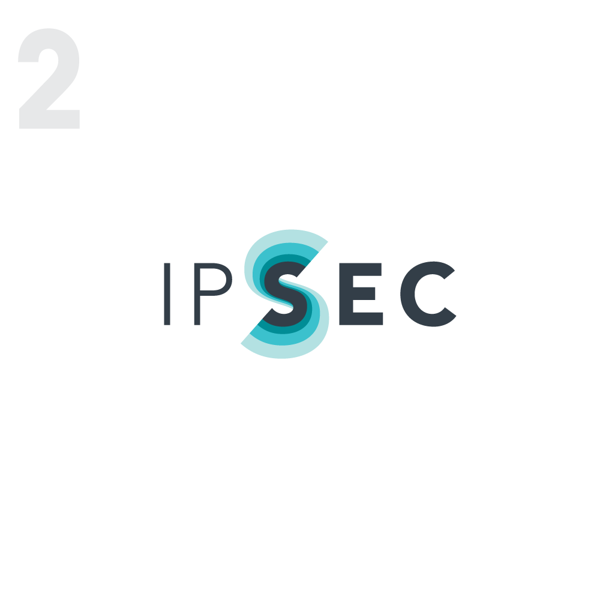IPSec IP Security and SSL Secure Socket Layer have been the most vigorous and most potential devices accessible for securing interchanges over the Internet. Both IPSec and SSL have focal points and short comings, yet no paper has been discovered contrasting the two conventions as far as trademark and functionality.

Which VPN technique is best for remote access?
You’re of course fine with the security of your system inside the workplace, however how would you feel with utilizing your tablet to get to your system from the nearby cafe?
IPSec (IP Security)
IPSec works on layer 3 thus can secure any convention that keeps running on top of IP. IPSec is a structure comprising of different conventions and calculations which can be added to and created. IPSec gives adaptability and quality top to bottom, and is a practically idealize answer for securing VPN’s. The main disadvantage is IPSec obliges setting up on the corporate system and on the customer end and is an unpredictable structure to work with. IPSec is utilized for both site to site and remote client integration.
SSL VPN (Secure Socket Layer)
SSL VPN gives amazing security to remote access clients and also usability. SSL is as of now intensely utilized, for example, when you shop internet, getting to your ledger on the web, you will see a SSL secured page when you see the “https” in your program URL bar rather than “http”.
Utilizing SSL VPN and IPSec:
IPSec remote client would oblige customer programming which would need introducing, designing and at times investigating. However with SSL there is no customer programming if a client was utilizing the SSL entrance. The entrance is a GUI interface that is gotten to through a web program and contains devices and utilities so as to get to applications on the system, for example, Outlook. SSL can likewise mirror the way IPSec meets expectations through a lightweight programming. In the event that a client obliged customer SSL programming, it can be introduced with next to no exertion by means of a program which rearranges the procedure in safely getting to the corporate system.
Utilizing SSL VPN would mean a large number of end client’s future ready to get to the corporate system without the backing of a head and conceivable hours of arranging and inconvenience shooting, not at all like IPSec. The end client would simply need to know the location of the SSL VPN entrance. Another point of interest is they can do this from any PC as they don’t need to depend on a designed customer side programming.
IPSec VPN is a system to-network and remote-access organizations which is has a scrambled Layer 3 passage set up between the associates. A SSL VPN, conversely, is normally a remote-access innovation that gives Layer 6 encryption administrations to Layer 7 applications and, through neighbourhood redirection on the customer, burrows other TCP conventions. From a simply specialized angle, you may have the capacity to run both IPSec and SSL VPNs at the same time, unless both the IPSec and SSL VPN items utilization introduced customer programming on the client’s PC.
Points about security we should keep in mind while choosing between SSL and IPSec:
Validation and access control: Each VPN sort presents distinctive choices for client validation, with clear ramifications for security. The basic contrast in how SSL and IPSec VPNs execute access control is an imperative thought in where and how every innovation is best connected.
Protection against assaults: Solid information privacy and respectability, and imperviousness to message replay and different assaults are vital to make a VPN secure.
Customer security: The passage can’t be secure if the host customer is bargained. VPN customer PCs need solid AV and firewall insurance, and administrators require an approach to look out for the “well-being” of those frameworks.
On the off chance that your association is among the numerous that have battled with the regulatory migraines and expenses of IPSec VPNs, going “client less” sounds convincing. Given the interest for secure, simple, whenever/any-place remote access for explorers and home office specialists, the surge of enthusiasm for SSL/TLS-based VPNs isn’t amazing. The key is choosing when to utilize IPSec and when to utilize SSL.


